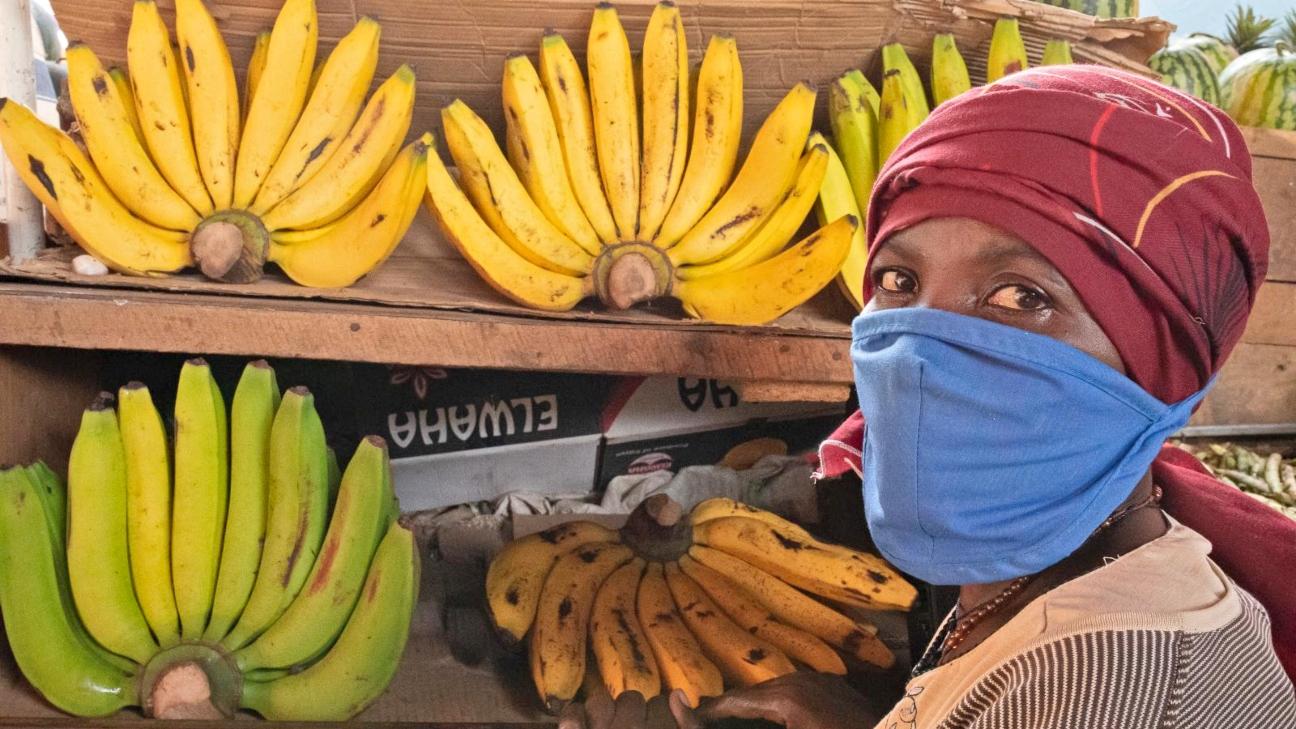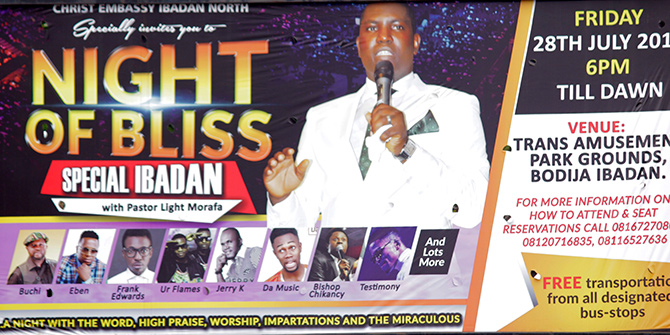In the third of a series of articles ahead of the 2016 LSE Africa Summit, Justin Villamil and Yossie Olaleye meet Professor Pius Adesanmi to discuss current issues in Nigerian politics, the African diaspora, and contemporary Nigerian literature.
Follow the LSE Space For Thought Literary Festival 2016 on Twitter with the hashtag #LSELitFest.
If you close your eyes and picture a literature professor in Ottawa, you do not picture Pius Adesanmi. Expecting to be greeted by a stuffy thesaurus personified, I was instead confronted by the beaming face of the professor himself who had emailed me an hour ahead of our scheduled time to tell me that he was ready. “Oh, so this is only audio? I could have worn jeans and a T-shirt,” he lamented.

Yossie Olaleye and I met with Pius Adesanmi to discuss his views on African identity, literature, and contemporary Nigerian politics. In his role in at Carleton University in Canada, we were particularly interested in his viewpoint as a member of the Nigerian diaspora, and where it placed him in ongoing conversations.
Pius Adesanmi burst onto the international literary scene in 2011 with the publication of his book You’re Not a Country, Africa! – a poignant mixture of personal essays, political discourses, satirical letters, and literary criticism. The book was awarded the Penguin Prize for African Writing in 2010. More recently, Adesanmi was appointed Director of the Institute of African Studies at Carleton University in Canada.
On the vision for the Institute and his job as Director, Pius said that as Director, he has a mandate to facilitate “strategic linkages” between Canadian institutions organising Africa-focused initiatives in order to blend them into the strategic vision of the Institute, whose aim is to shift narratives — something that 2016 LSE Africa Summit also aims to do.
“We would like to think of ourselves as part of this broader movement,” he told us.
I asked him about the African diaspora and its increasing importance in the ongoing conversation about Africa’s future. Adesanmi said that the line between the “diaspora” – those who are “out” – and Africans based on the continent, is becoming increasingly blurred. Using himself as an example, he said, “I get this question a lot: where are you based exactly? When the Nigerian Prize for Literature was first launched… there was a clear-cut dichotomy between the so-called home-based writers and the diaspora writers. You could make that neat separation.”
However, for Nigerian writers abroad, there was some confusion. “We thought: If you go this way, you are defining what it means to be a ‘Nigerian writer’; you’re saying that one has to be based in Nigeria to ‘be’ a Nigerian writer.” Adesanmi said that it used to be theoretically possible to conceptualise the difference between Nigerians who were “in” and those who were “out.” But, nowadays, an important question looms: Who makes up this diaspora?
According to Adesanmi, those boundaries have largely collapsed because of the communities of discourse and engagement that are online. “Everyone is everywhere online and there are massive flows,” he said. Something of a social media doyen, Adesanmi has one of the largest and liveliest Facebook fan bases of any academic, and he has argued forcefully that this social media engagement is shrinking the distances between people on the continent.
A self-confessed student of social media, Adesanmi told us that before Twitter and Facebook, East Africans and West Africans were not talking to each other. Now, there are new artistic and cultural festivals all over the continent, such as Ake festival and Kwani?. To Adesanmi, they are not simply literary festivals, but “a meeting of minds” which has been made possible by social media. He told us that despite the differences across Africa, he sees these conversations as pointing in the direction of a Pan-African identity.
Indeed, one thing that remains with you after talking to Pius Adesanmi for any period of time is his optimism. Throughout the interview, and while reading Adesanmi’s books, I sense a real undercurrent of hope. He recognises the Nigerian—and wider African—problems, but through it all, he sees things changing, however small.
Towards the end of our interview, we turned to the political, which we suspect excites Adesanmi. He is an outspoken critic of former President Goodluck Jonathan and an equally outspoken supporter of current President Muhammadu Buhari. In 2015, Adesanmi published Naija No Dey Carry Last: Thoughts on a Nation in Progress — his reflections on Nigerian life and politics. Since the election, however, the beleaguered Buhari administration has faced serious economic challenges and criticism for slowness, as the government is currently pursuing an anti-corruption campaign, while seemingly neglecting economic growth. I asked him if he retains his optimism, to which he immediately answered, “Absolutely, absolutely.”
Adesanmi said: “It was never about Buhari, it was about Nigeria, and Jonathan had to go. With that said, you don’t put Buhari there and go to sleep, forgetting that there is a broader responsibility to the Nigerian project.” Thus, where anti-corruption is concerned, Adesanmi gives Buhari a pass, albeit a cautious one. Because, according to him, it is one thing for people to be saturated with the revelations of the national theft that occurred under Goodluck Jonathan’s watch, but Nigerians need to see proper arraignments – at least one big conviction. While Adesanmi agrees that President Buhari is not doing too well on the economic side of things, he points out that it is important to note the nation he adopted, and where that nation is coming from.
Nevertheless, Adesanmi praises the President’s “symbolic” act of handing all presidential functions over to Vice President Yemi Osinbajo, a past speaker at the LSE Africa Summit, during his 5-day long vacation in February. This is something that is rare in Nigeria’s history. Adesanmi added humorously, “Yar’Adua would rather die on a hospital bed in Saudi Arabia than hand over to Goodluck Jonathan.”
The full interview with Professor Pius Adesanmi can be found on the LSE Africa Summit Soundcloud page and is available for download. Follow him on Twitter @pius_adesanmi.
The 2016 LSE Africa Summit will take place on 22nd – 23rd April 2016 in the Sheikh Zayed Theatre at LSE. Follow this link to find out more about the Summit and to register.
Justin Villamil and Yossie Olaleye are MSc students at LSE, studying Development Management and Media and Communication Governance respectively.
The views expressed in this post are those of the authors and in no way reflect those of the Africa at LSE blog or the London School of Economics and Political Science.






1 Comments